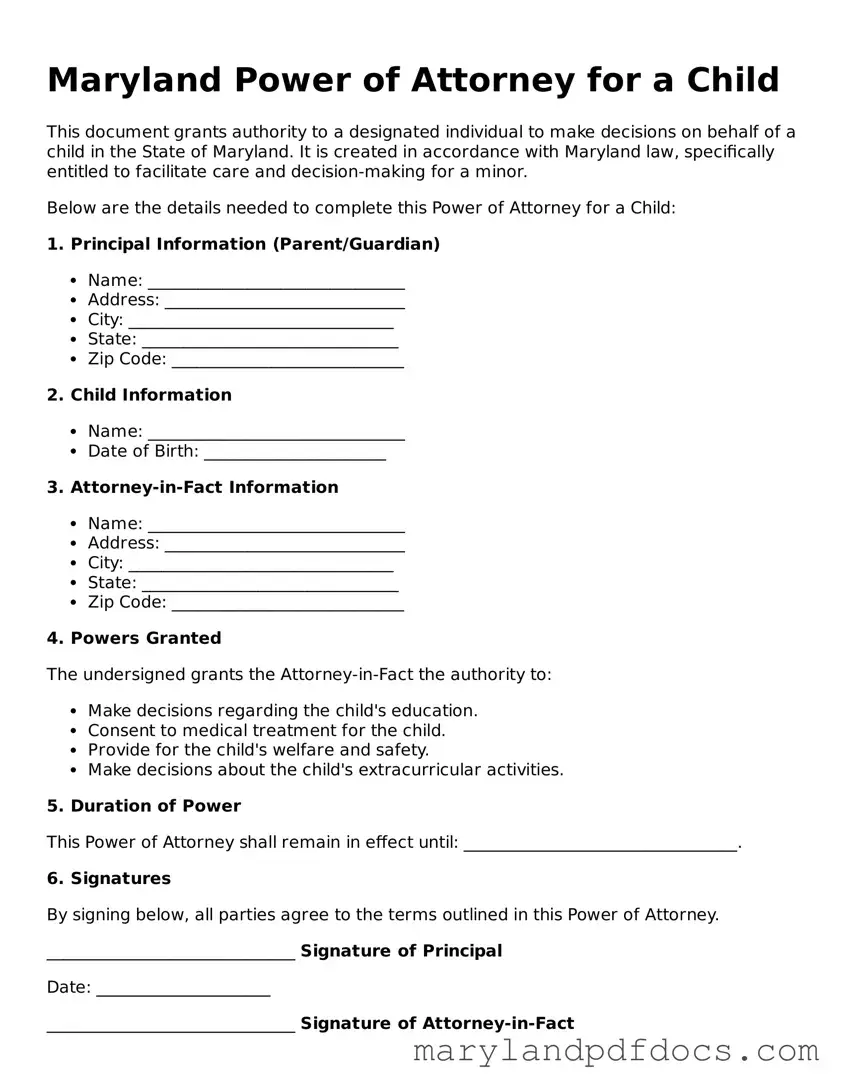Printable Maryland Power of Attorney for a Child Template
The Maryland Power of Attorney for a Child form is a legal document that allows a parent or guardian to designate another adult to make decisions on behalf of their child. This arrangement can be crucial in situations where the parent is unavailable or unable to care for the child temporarily. Understanding how to properly complete this form is essential for ensuring the child's needs are met.
To fill out the form, please click the button below.
Launch Power of Attorney for a Child Editor

Printable Maryland Power of Attorney for a Child Template
Launch Power of Attorney for a Child Editor

Launch Power of Attorney for a Child Editor
or
Free Power of Attorney for a Child PDF
You’ve already started — finish it
Fill out Power of Attorney for a Child digitally in just minutes.